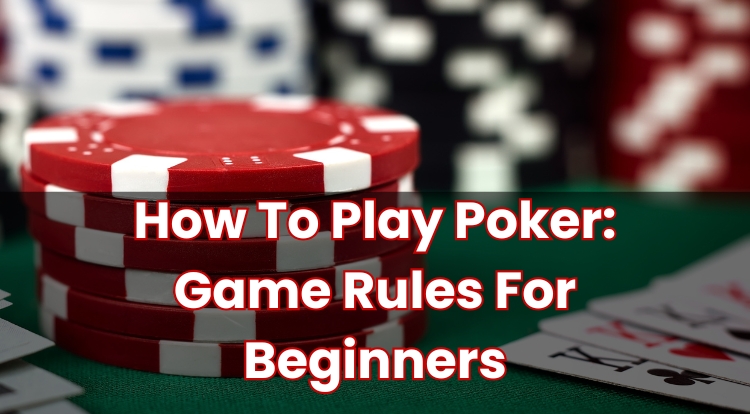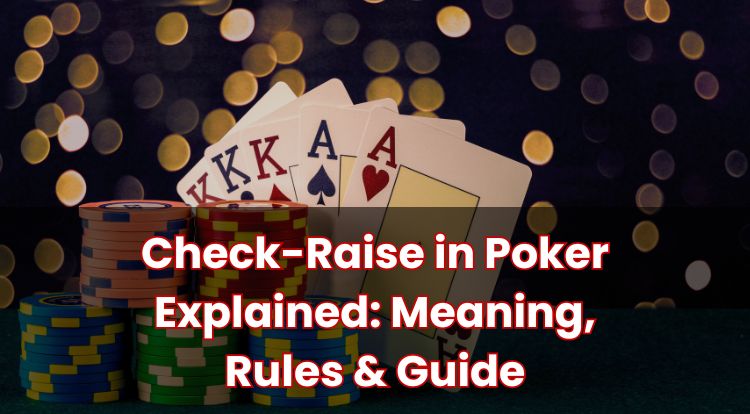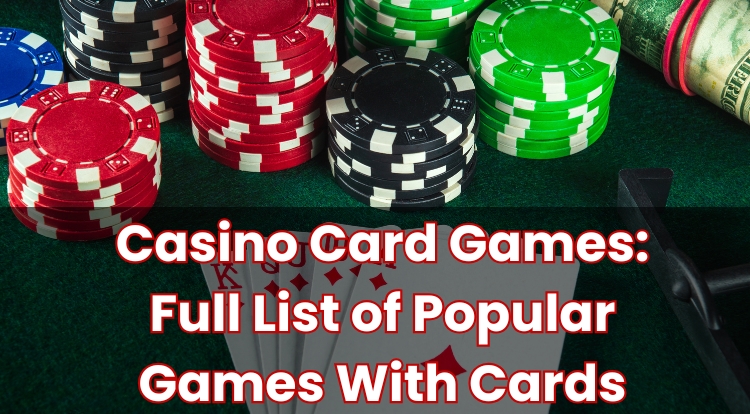What Does Call, Raise, Check & Fold Mean In Poker?
If you’re new to poker, words like “call”, “raise”, “check”, and “fold” can seem a bit confusing. Learning the basics is the first step in feeling comfortable at the card table. After learning these terms, you’ll be better prepared to enjoy the game and make informed decisions.
In this blog post, we’ll explain these fundamental actions in poker, helping you to take your first steps towards understanding the game better. Whether you’re a curious beginner or just brushing up on your knowledge, read on to discover the meaning behind these key poker terms.
Poker Terminology Explained
Call
In poker, when you “call”, you are matching the current highest bet in the round. This means that you want to stay in the hand without raising the stakes.
For example, if another player bets £10, and it’s your turn, you can “call” by putting in £10 to match it. This keeps you in the game for that round, and you’ll get to see the next card or reach the showdown if it’s the final round of betting.
Raise
To “raise” means to increase the current bet. After a player bets, you can choose to put in more money, signalling your confidence in your hand.
For instance, if someone bets £10, and you feel confident about your hand, you might raise the bet to £20. Raising can be a strategy to test the other players’ hands or make them reconsider their positions.
Check
When you “check”, you’re choosing not to bet but staying in the game; however, checking is only an option if no one has bet in the current round. You’re essentially staying in the game without adding any money to the pot. Checking can be a useful tactic if you want to see what others do before you commit any more money.
Fold
Folding means you decide to stop playing your current hand and exit the round. It’s your way of saying you’re not willing to bet further and want to surrender your cards.
When you fold, you’re out of that round, which is often a sensible decision if you think your hand isn’t strong enough. It’s better to save your chips for future rounds when you think you may have a more favourable hand.
Frequently Asked Questions
When Should You Fold In Poker?
Folding in poker is often a sensible decision when you think your current hand isn’t looking promising. For example, if your cards aren’t aligning well with the community cards or your opponents are betting confidently, it may be time to fold. This choice can help you conserve your chips for better opportunities and is a crucial part of a good poker strategy.
What Is a Snap Call In Poker?
A snap call takes place when a player quickly calls a bet without hesitation. This fast action may indicate the player feels confident about their hand’s value. Sometimes, it can be used to create a specific impression at the table, helping to influence other players’ perceptions.
When Do You Call In Poker?
You decide to call in poker when you want to match the highest bet so far, keeping you in the game to see the next card without increasing the bet amount. You might call when you have a viable hand but aren’t convinced it’s strong enough to justify a raise, allowing you to stay in the round and gather more information.
How Many Times Can You Raise In Poker?
The number of raises allowed in poker varies by game type. In fixed-limit games, there’s usually a limit on raises per betting round, often three or four times. In no-limit or pot-limit games, the rules are more open, offering a broader range of strategic options. It is wise to be aware of the rules before playing to ensure you make more informed decisions at the table.
What’s The Maximum Raise In Poker?
In no-limit poker games, the maximum raise is determined by the total chips you have, allowing you to bet everything you have at the table if you wish. Fixed-limit games, however, have predetermined raise amounts, and these are set before the game begins. Knowing these limits helps you manage your bets wisely.
Can You Re-Raise In Poker?
Yes, you can re-raise in poker. This happens when a player raises a bet, and you choose to increase it again. Re-raising, which can also be known as a Three-Bet, can be used to apply pressure on your opponents, indicating that you have a robust hand or to add complexity to the betting dynamics.
What Does Check Raise Mean?
A check-raise is an advanced technique where you start by checking, suggesting a less strong hand, and then raising after another player bets. This tactic can be utilised to increase the pot size when you believe you have a competitive hand. It’s a way to challenge your opponents, indicating that your hand may be more substantial than they initially perceived.
Always remember to gamble responsibly for an enjoyable gaming experience. You can gamble responsibly by setting limits to your playing time, sticking to a strict budget within your means and making use of any responsible gambling tools available.
*All values (Bet Levels, Maximum Wins, etc.) mentioned in relation to this game are subject to change at any time. Game features mentioned may not be available in some jurisdictions.
**The information provided in this blog is intended for educational purposes and should not be construed as betting advice or a guarantee of success. Always gamble responsibly.





